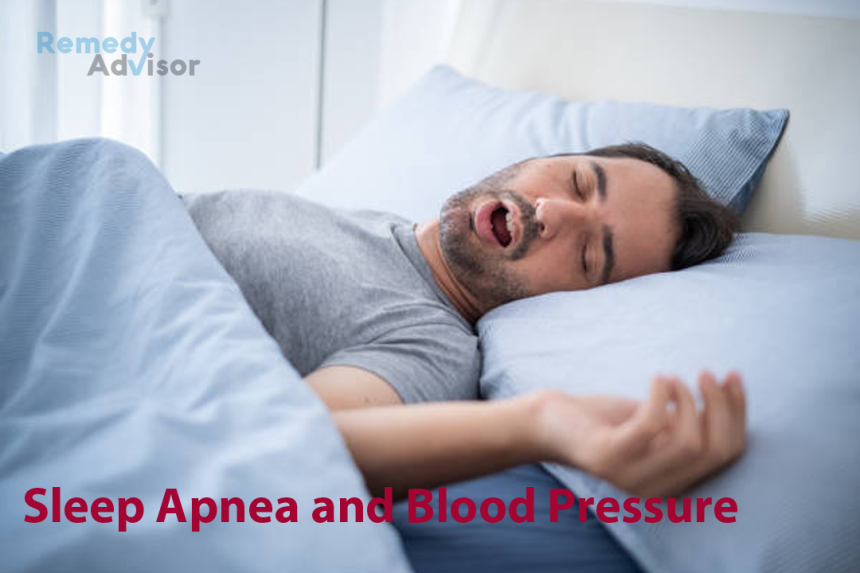Do you have obstructive sleep apnea? It’s been estimated that up to 90 percent of people with sleep apnea don’t even know they have this sleep condition, and the reason is simple: they are asleep when the symptoms occur, so they need to have someone typically their sleep partner tell them about the apnea. The reason knowing about sleep apnea is especially important for our purposes is that about 50 percent of people who have essential hypertension have sleep apnea and about 50 percent of people with sleep apnea have essential hypertension.
Obstructive sleep apnea is defined as a condition in which individuals experience at least ten occasions per hour when the throat muscles relax and block the airway during sleep, causing the individual to stop breathing for about ten to twenty seconds or longer. This lack of breathing reduces the amount of oxygen in your blood and causes the brain to respond by briefly waking you up so your airway will reopen. Fortunately, you will rarely remember being awakened, but your body remembers, because you will feel tired the next day. The most apparent sign of obstructive sleep apnea is snoring, while some people snort, gasp, or make choking sounds as well. If you are middle-aged or older and are overweight, you are more likely to be affected by obstructive sleep apnea, but it can affect people of any age.
In fact, many people who have this sleep disorder don’t even realize it because it requires that their sleep partner tell them it is happening. Even then, many people don’t equate snoring or brief breathing stoppages with sleep apnea.
However, if your doctor asks you whether you snore, if you are excessively tired during the day, and if your sleep partner has told you about interrupted breathing events and you answer “yes” to any of these questions, then you could have obstructive sleep apnea. It’s true that not everyone who snores has obstructive sleep apnea. However, if your snoring is accompanied by periods of silence and not breathing it is likely sleep apnea. Other signs of obstructive sleep apnea is waking up with a sore throat or dry mouth, headache in the morning, and waking up abruptly accompanied by shortness of breath. If you also have high blood pressure, then this is important information you can use to help you improve both your sleep and your blood pressure.
The good news is that most studies that have looked at the impact of treatment for sleep apnea on blood pressure have found that it not only eliminates snoring, daytime tiredness, and interrupted breathing but also significantly lowered blood pressure. So how do you treat obstructive sleep apnea?
Treating Obstructive Sleep Apnea
If you suffer with obstructive sleep apnea and hypertension, relief could be as easy as a few lifestyle changes, depending on the severity of your problem. For example:
Don’t sleep on your back
People with obstructive sleep apnea and/or who snore tend to sleep on their back. Make an effort to sleep on your side, and ask your sleep partner to help you. You might also use pillows behind your back to prevent you from rolling over on your back.
Drop some pounds
Being overweight is a significant risk factor for obstructive sleep apnea.
Limit your alcohol consumption
In fact, avoid alcohol altogether if you can, but if you do drink, have only one or two and don’t drink for about three or more hours before bedtime. Alcohol suppresses the nervous system, which can make it more difficult to breathe.
Stop smoking
Smoking causes your upper airway to swell, which can make sleep apnea worse.
Use a nasal decongestant
Rather than an over the-counter medication, you can choose a natural saline solution or use a neti pot to help clear your sinuses.
Use CPAP
If your doctor diagnoses you with obstructive sleep apnea and natural treatments don’t provide enough relief, then you may get help from a machine that delivers air pressure through a mask you wear at night while you sleep. Continuous positive airway pressure (CPAP) provides air through a mask with just enough pressure to keep your upper airway passages open, which can prevent snoring and obstructive sleep apnea. There are several different types of CPAP, so be sure to discuss the options with your doctor. If wearing a mask while you sleep doesn’t work or is not acceptable, a dentist may fit you for an oral device that helps keep your throat open and/or your jaw forward while your sleep. Surgery is a last resort but can be arranged for severe obstructive sleep apnea or cases that involve enlarged tonsils or adenoids. One minimally invasive procedure for people with mild obstructive sleep apnea is the placement of implants in the soft palate. The implants help reduce the amount of collapse of the upper airway.







